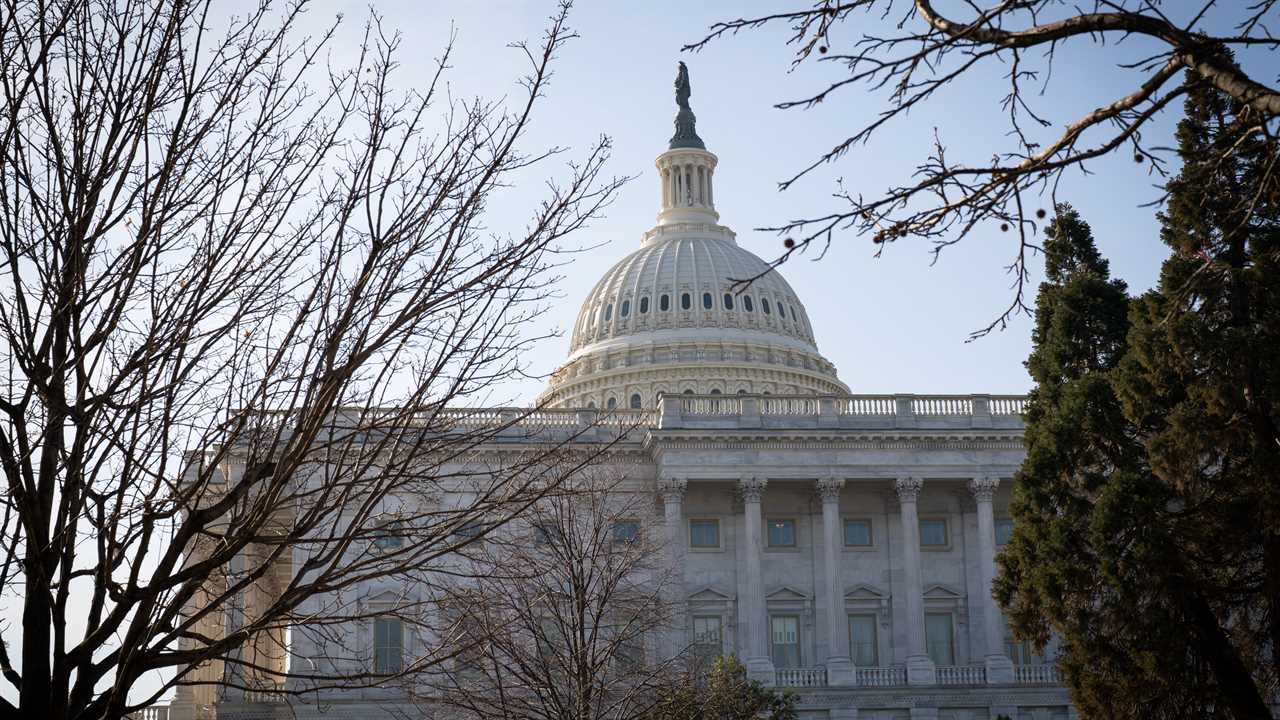
WASHINGTON — The Senate hit a nasty partisan impasse this year over voting rights legislation, but when it comes to how senators cast their own votes, there is broad consensus among Republicans and Democrats that something is amiss.Frustration over the grindingly slow pace at which the Senate votes has reached a boiling point, leading most of its members to embrace a concept that would seem to be foreign: policing themselves to stay on schedule.In a chamber where getting agreement from 60 senators on almost any major issue has proved to be an unattainable goal, more than 80 have signed on to a pledge originated by Senator Thom Tillis, Republican of North Carolina, to rein in the length of votes. It declares that the Senate’s presiding officer can close a vote if the signatory is the sole missing senator and his or her vote would be mathematically certain not to change the outcome.It is not a cure for Covid and it won’t solve other procedural fights buffeting the chamber, but it can be considered progress in the hidebound Senate, where taking any step out of the 18th century can provoke fierce resistance.“This is a no-brainer,” said Mr. Tillis, who said he had been pleasantly surprised by the willingness of his colleagues — in a rare display of near-unanimity — to entertain a gesture that could make the notoriously inefficient Senate a trifle more orderly.The Senate’s voting practices — along with those in the House — underwent some changes beginning in 2020 in response to the pandemic. In the early days of the outbreak, lawmakers were encouraged to space out their attendance on the floor to avoid spreading the coronavirus. But what started as a health and safety measure has persisted even though nearly every senator is fully vaccinated, spiraling into a time-wasting, staff-maddening marathon for even the most routine of matters.Votes in the chamber sometimes derisively called the world’s greatest deliberative body have never been particularly speedy. Typically set to last for 15 minutes, they frequently drag on for several more, as Senate officials wait for the last stragglers to trickle in from the airport, a committee vote or some other engagement. The Senate often tries to take several votes in succession, so any delays stack up.But in recent months, the delays have gotten extreme. It is now a common occurrence for votes to drag on interminably, some stretching to an hour or more, with many settling in around the 45-minute mark. The only exceptions are votes at the end of the day, when senators are eager to leave the Capitol, or the so called “getaway vote” that is the last of the week, usually on Thursday afternoons. But even those have become unpredictable, and can drag on.“It has really gotten out of hand,” said Senator Richard Blumenthal, Democrat of Connecticut.The result, many senators say, is that their carefully calibrated schedules get totally upended, committee hearings experience lengthy interruptions and the already crawling Senate moves even slower.“We could literally do more of the people’s business and get more done and be able to participate more in committee hearings if we had a more set schedule on votes,” said Senator Amy Klobuchar, the Minnesota Democrat who chairs the Rules Committee. “We could spend more time in the chamber actually debating major issues, rather than waiting around for someone to arrive in their car.”It is the last point that tends to frost most senators. On any vote, one or two of their colleagues will consider whatever they are doing so important that they are willing to leave scores of other senators — none of whom are shy about emphasizing their own importance and heavy workloads — cooling their heels as they make their way to the chamber from a constituent meeting or a fund-raising call off campus.“It is just ridiculous,” said Senator Roy Blunt of Missouri, the top Republican on the Rules Committee. “It is rude for 95 senators to be there waiting for the other five to show up.”After a lengthy wait recently, Senator Richard J. Durbin of Illinois, the No. 2 Democrat, sought to get the name of the last senator to vote from the Senate clerks, perhaps to embarrass the offender. The staff professed not to know.Senators say while there may be a handful of habitual offenders, many of them have been guilty as the tardiness has become rampant.“Bad behavior breeds bad behavior,” Mr. Blunt noted.ImageSenator Roy Blunt said that it is rude for 95 senators waiting, while waiting for five ran late.Credit...Sarahbeth Maney/The New York Times“Everybody adapts their behavior,” said Senator Chris Van Hollen, Democrat of Maryland. “Now its worse and worse and worse.”Senator Chris Coons, Democrat of Delaware, who was among the first to beBy: Carl Hulse
Title: The Senate Moves in Slow Motion. Could This Speed It Up?
Sourced From: www.nytimes.com/2022/02/17/us/politics/senate-vote-speed.html
Published Date: Thu, 17 Feb 2022 17:40:56 +0000
Read More
 UK PoliticsWorld PoliticsVideosPrivacy PolicyTerms And Conditions
UK PoliticsWorld PoliticsVideosPrivacy PolicyTerms And Conditions
